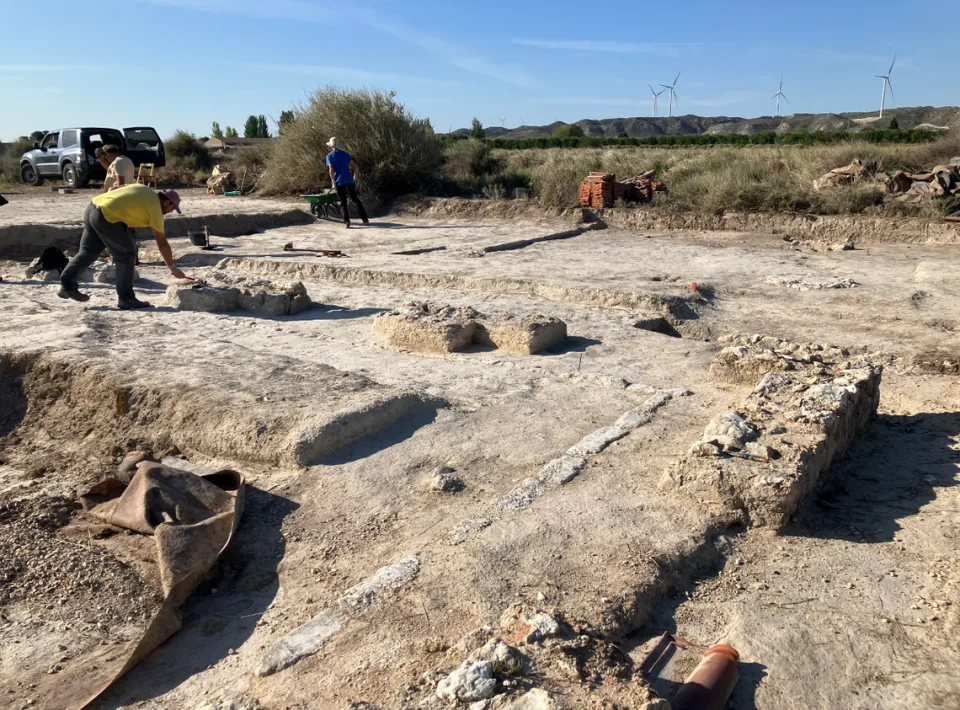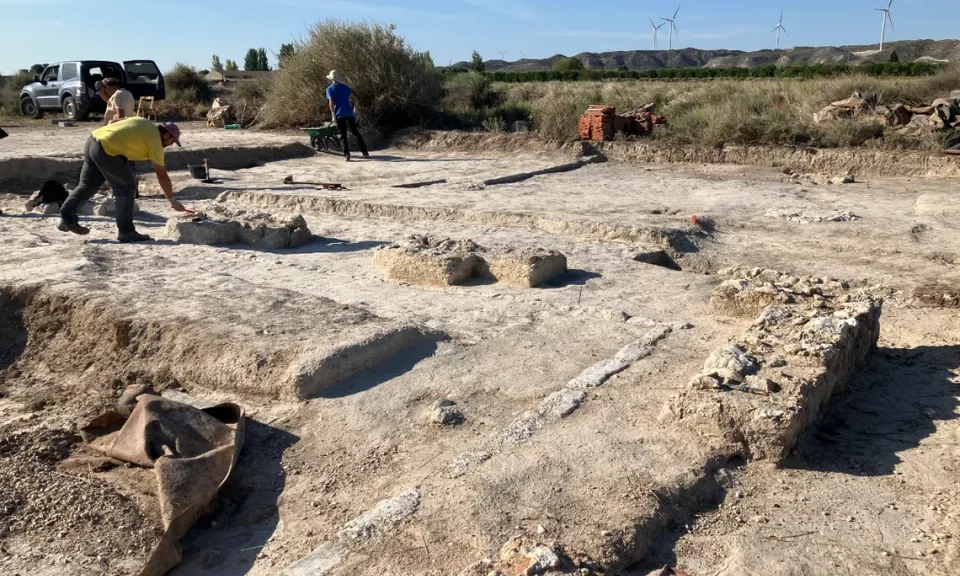Ancient Roman city was violently destroyed. Now, its huge plaza has been unearthed
The ruins of an enormous Roman plaza — which dates back around 2,000 years — were recently unearthed in Spain.
It is the oldest known public square ever found in the interior of the Iberian Peninsula, which encompasses Spain, Portugal and part of France, according to a news release from the University of Zaragoza.
The excavation was made at La Cabañeta, an archaeological site along the banks of the Ebro River in northeastern Spain, researchers said.

It contains the remains of a mysterious, ill-fated Roman city founded around 200 B.C. Less than a century later, the city with a name not yet known was violently destroyed during a civil war.
After nearly a decade-long hiatus, archaeologists resumed operations at the site in July. Their excavation was focused on the central area, where the ruins of a massive square were found.
The unearthed plaza was surrounded by a portico topped with meticulously crafted tiles, researchers said. A series of chambers, likely used for commercial activity, were also located.
The discovery is of great significance because of its architectural intricacy and large size. It will help scholars understand the diffusion of Roman-style architecture throughout the Iberian Peninsula, where the Roman Empire once had multiple provinces.
The city, which was organized in a grid, likely once served as a transportation hub for merchants ferrying goods up and down the river, Borja Díaz, co-director of the excavation, told El Pais.
But charred material indicates that around the year 70 B.C., the city met its ruin, Díaz told the outlet, adding that he hadn’t ruled out the possibility of encountering human remains.
The city’s destruction occurred during the Sertorian War, a bloody conflict in modern-day Spain associated with the First Roman Civil War, according to a 2022 study published in the Journal of Roman Archaeology.
Confrontations were characterized by “assaults and sieges of towns that habitually ended with them being burned to the ground or destroyed, and with severe punishments meted out to the populations,” according to the study.
Large Roman structures are regularly unearthed throughout the Mediterranean.
A Roman stadium-lake structure was located in Greece in 2022, and a massive Roman-era building with thermal baths was discovered in France earlier this year, according to reporting from McClatchy News.
